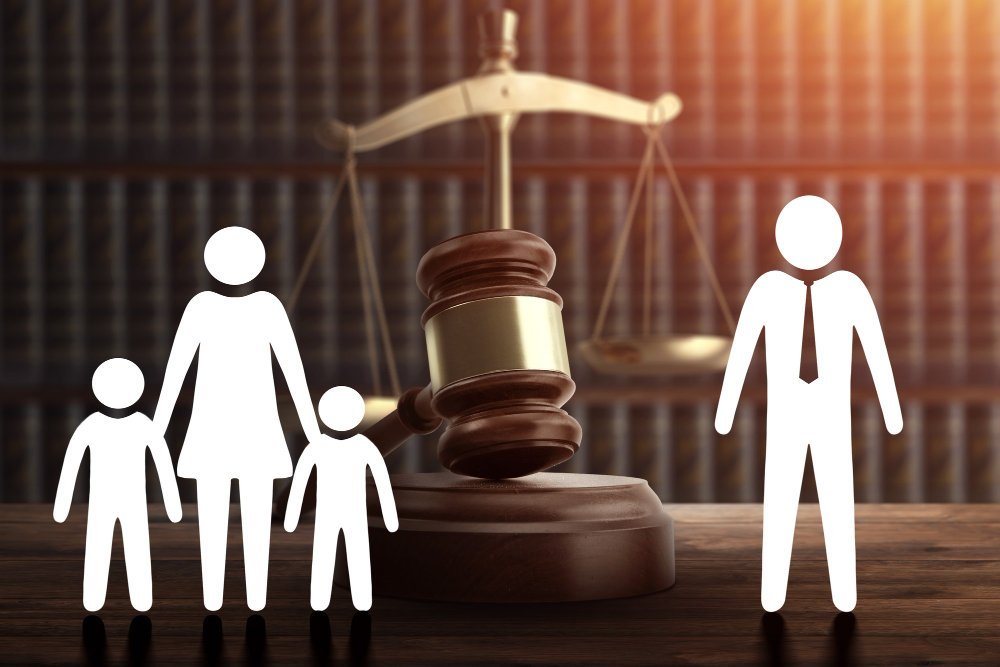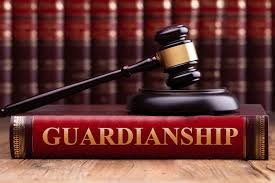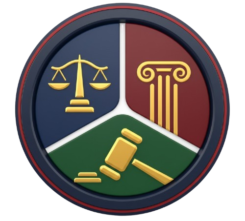- +92 333 1127830
- info@qanoonhouse.com
- Qanoon House, T-219, Supreme Corner, Jauhar Chowrangi, Block 17, Gulistan-e-Jauhar, Karachi, Pakistan
What is Guardianship? Concept of Natural Guardianship
This blog is written by Mohsin Ali Shah, Pakistan’s most experienced Guardianship Lawyer. With an impressive track record and unparalleled expertise in guardianship law, Mohsin Ali Shah, the CEO of Qanoon House, Pakistan, brings a wealth of knowledge and insights to this platform. As a seasoned legal professional, he has dedicated his career to advocating for the rights and welfare of vulnerable individuals, making him a trusted authority in guardianship. Get ready to delve into the world of guardianship law and universal rules with the guidance of an esteemed legal expert.

Legal Services
Our Attorney

What is Guardianship? Concept of Natural Guardianship
Natural guardianship is a unique form of guardianship that arises by operation of law and is based on the inherent rights and responsibilities of specific individuals about minors. This article explores the concept of natural guardianship, delineating its rights and obligations and examining its distinctions from court-appointed guardianship.
Definition and Concept of Natural Guardianship
Natural guardianship is the legal status bestowed upon parents by default, granting them certain rights and responsibilities over their minor children. It recognizes the inherent bond between parents and their children, acknowledging the natural inclination of parents to care for and protect their offspring. Natural guardianship arises automatically and does not require any formal appointment or court intervention. It is a fundamental framework for safeguarding the child’s best interests and maintaining the family unit.
Rights and Responsibilities of Natural Guardians
Parents have specific rights and responsibilities for their minor children as natural guardians. These include the right to make decisions concerning the child’s welfare, upbringing, education, and healthcare. Natural guardians provide for the child’s physical, emotional, and financial needs, ensuring their safety, well-being, and development. They have the authority to make day-to-day decisions and act in the best interests of their children without seeking external approval or consent.
Natural Guardianship vs. Court-Appointed Guardianship
Natural guardianship differs from court-appointed guardianship in several vital aspects. While natural guardianship is inherent and arises automatically, court-appointed guardianship involves a legal process and requires the intervention of a court. Natural guardianship is based on the biological or legal parent-child relationship. In contrast, court-appointed guardianship is established when a non-parent assumes the role of guardian for a minor or incapacitated individual. Court-appointed guardianship comes into play when the natural guardians are absent, unable to fulfil their responsibilities, or when the court determines it is in the child’s best interests to appoint a different guardian.
Natural guardianship holds a distinct place within the realm of guardianship, recognizing parents’ inherent rights and responsibilities towards their minor children. By understanding the concept of natural guardianship and its rights and responsibilities, we appreciate the significance of the parent-child relationship in providing care, protection, and guidance. While court-appointed guardianship serves a valuable purpose in certain circumstances, natural guardianship is a particular case that recognizes parents’ fundamental bond and legal status in ensuring their children’s well-being and development.


Alternatives to Guardianship
While guardianship can effectively provide care and support for individuals who cannot make decisions for themselves, there are more suitable options. Fortunately, alternative arrangements allow individuals to retain autonomy and decision-making capacity. This article explores several alternatives to guardianship, highlighting their benefits and how they provide an alternative approach to ensuring the well-being and protection of vulnerable individuals.
Power of Attorney
A power of attorney is a legal document that grants someone else the authority to act on behalf of another person in specific matters. It allows individuals to designate a trusted individual, an agent or attorney-in-fact, to make decisions on their behalf. A power of attorney can be tailored to suit specific needs, such as financial matters, healthcare decisions, or legal affairs. By granting a power of attorney, individuals can maintain control over their experiences while receiving assistance and support when needed.
Advance Healthcare Directives
Advance healthcare directives, also known as living wills or healthcare proxies, enable individuals to express their healthcare wishes and appoint a healthcare agent to make medical decisions if they become incapacitated. These directives outline the individual’s preferences regarding medical treatments, end-of-life care, and other healthcare decisions. By creating an advanced healthcare directive, individuals can ensure their wishes are respected and relieve their loved ones of the burden of making difficult healthcare choices.
Living Trusts
Living trusts, or revocable trusts, provide an alternative approach to managing and distributing assets while ensuring continuity in decision-making. Individuals transfer their assets into the trust with a living trust and designate a trustee to manage its affairs. The individual can act as the initial trustee and retain control over the trust while they can do so. In the event of incapacity or death, a successor trustee takes over the management of the trust and follows the individual’s instructions, thereby avoiding guardianship and streamlining the administration of assets.
Supported Decision-Making
Supported decision-making is a person-centred approach that allows individuals with disabilities or cognitive impairments to make decisions with the assistance of a trusted support network. Rather than relying on a guardian to make decisions, individuals receive guidance and support from family members, friends, or professionals who help them understand their choices’ options, consequences, and implications. Supported decision-making promotes autonomy and respects individuals’ right to participate in decision-making processes.
Guardianship Plays an Important Role in Providing Care and Support
While guardianship plays a crucial role in providing care and support, exploring alternatives that preserve individual autonomy and decision-making capacity is essential, power of attorney, advanced healthcare directives, living trusts, and supported decision-making offer viable alternatives to guardianship, allowing individuals to maintain control over their affairs while still receiving the necessary assistance and support. By considering these alternatives, individuals can tailor their arrangements to suit their specific needs, preferences, and circumstances, ensuring their rights and dignity are upheld while receiving the necessary care and protection they require.
Securing a Bright Future for Orphaned Children
Guardianship is crucial in securing a bright future for orphaned children. By appointing a legal guardian, the welfare and best interests of the child are prioritized. The guardianship ensures stability, love, and support, enabling these vulnerable individuals to thrive and grow into confident, capable adults. Through guardianship, these children find solace and a sense of belonging, paving the way for a promising future.
Exploring the Role of Guardianship in Adoption Cases: Guardianship plays a pivotal role in adoption cases, offering legal protection and guidance for both the adoptive parents and the child. The guardianship ensures that the child’s best interests are upheld throughout the adoption process, providing a stable and nurturing environment for their growth and development. Through guardianship, the rights and welfare of the child are safeguarded, enabling a smooth transition into their new family.
Guardianship: Upholding the Best Interests of the Ward
The essence of guardianship lies in upholding the best interests of the ward. A guardian is responsible for making decisions that prioritize the physical, emotional, and mental well-being of the individual under their care. The ward’s rights and needs are protected through guardianship, ensuring their overall welfare and quality of life.


Guardianship: Providing Guidance and Protection for Vulnerable Individuals
Guardianship is a vital mechanism for providing guidance and protection to vulnerable individuals. Whether it’s children, individuals with disabilities, or the elderly, guardianship offers support and advocacy. The guardian acts as a guiding light, ensuring that vulnerable individuals’ rights, safety, and well-being are upheld in every aspect of their lives.
The Importance of Legal Guardianship in Healthcare Decision-Making
Legal guardianship plays a crucial role in healthcare decision-making for individuals who cannot make informed choices. The guardian becomes the voice and advocates for the ward, ensuring medical decisions align with their best interests and preferences. Through guardianship, the ward’s healthcare needs are managed responsibly and by their unique circumstances.
Guardianship: Ensuring a Safe and Stable Environment for Minors
Guardianship is a cornerstone for ensuring a safe and stable environment for minors. The appointed guardian is responsible for nurturing and protecting the child, providing them with a loving and supportive home. The minor’s physical, emotional, and educational needs are met through guardianship, creating an environment conducive to their growth and well-being.
Understanding the Responsibilities of Legal Guardianship for Special Needs Children
Legal guardianship for special needs children comes with unique responsibilities. The guardian assumes the role of advocate, ensuring the child’s access to specialized services, educational opportunities, and appropriate care. The guardianship provides the necessary legal framework to support and protect the rights of these children, promoting their overall development and well-being.
Guardianship: Supporting and Advocating for the Rights of the Ward
Guardianship is a vital platform for supporting and advocating for the ward’s rights. The guardian acts as their voice, ensuring their rights are protected, their needs are met, and their best interests are always considered. The ward receives the necessary support and representation through guardianship, empowering them to live a fulfilling and meaningful life.
Guardianship: Fostering Independence and Self-Advocacy for Disabled Adults
Guardianship plays a significant role in fostering independence and self-advocacy for disabled adults. The appointed guardian supports and encourages the individual’s autonomy while providing necessary assistance. Through guardianship, disabled adults can exercise their rights, make informed decisions, and actively participate in shaping their own lives.
Guardianship: Establishing a Legal Framework for Foster Care
Guardianship establishes a vital legal framework for foster care, ensuring the well-being and protection of children in temporary placements. The guardian acts as a source of stability, offering guidance and support during a challenging time. The foster child’s rights and interests are safeguarded through guardianship, promoting their emotional, social, and educational development.


Guardianship: Preserving the Cultural Heritage of Minors
Guardianship plays a pivotal role in preserving the cultural heritage of minors. The appointed guardian embraces and values the child’s cultural background, ensuring that traditions, customs, and values are upheld. Through the guardianship, the minor’s sense of identity and belonging are nurtured, allowing them to grow with a deep appreciation for their cultural heritage.
Guardianship: A Lifeline for Unaccompanied Refugee Minors
Guardianship is a lifeline for unaccompanied refugee minors, offering them protection, support, and guidance in unfamiliar surroundings. The appointed guardian becomes a pillar of strength, advocating for their rights, assisting with legal processes, and providing emotional stability. Through guardianship, these vulnerable individuals find solace and hope amidst challenging circumstances.
Exploring the Emotional Impact of Guardianship on Caregivers
Guardianship profoundly emotionally impacts caregivers who selflessly take on the responsibility of caring for another individual. The role of a guardian requires compassion, patience, and dedication, often leading to a deep bond with the ward. Through guardianship, caregivers experience the rewards of making a positive difference in someone’s life while facing the challenges of such a significant commitment.
Guardianship: Protecting the Rights of Individuals with Mental Illness
Guardianship plays a vital role in protecting the rights of individuals with mental illness. The appointed guardian ensures that their best interests are prioritized, including access to appropriate medical care, therapy, and support services. Through guardianship, individuals with mental illness receive the necessary care and advocacy, promoting their well-being and recovery.
Guardianship: Ensuring Educational Opportunities for Minors
Guardianship is instrumental in ensuring educational opportunities for minors. The guardian is responsible for making educational decisions, enrolling the child in appropriate schools, and advocating for their academic needs. Through guardianship, minors receive the necessary support and guidance to pursue their educational goals, empowering them for a successful future.
Guardianship: Providing a Stable Environment for Children of Divorce
Guardianship provides a stable environment for children of divorce, offering them security and continuity amidst the changes in their family dynamics. The appointed guardian ensures the child’s emotional well-being is prioritized, fostering healthy relationships and facilitating adequate co-parenting arrangements. Through guardianship, children of divorce find stability and support, enabling them to navigate the challenges with resilience and confidence.
